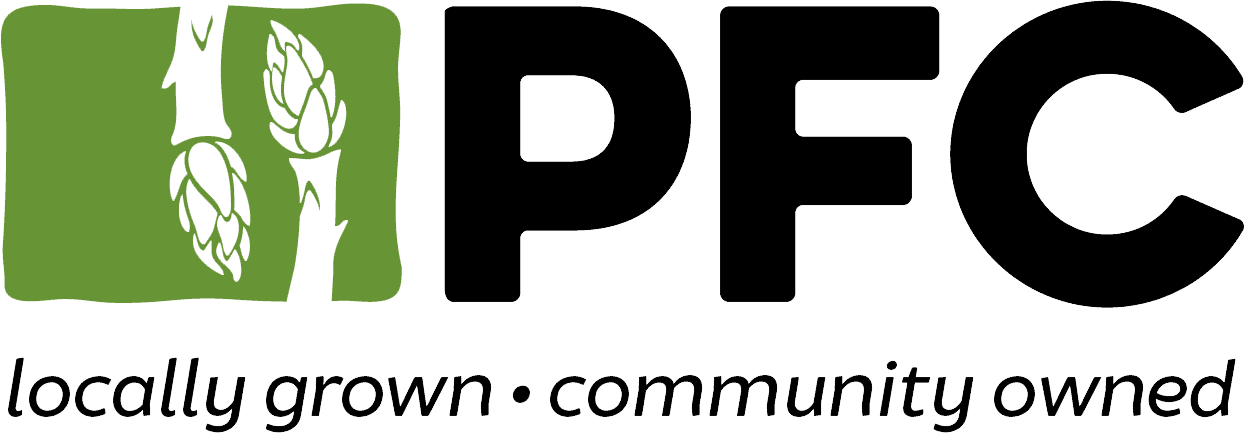Here at the market, we have a goal of someday going zero waste. That’s a term most people haven’t heard of before. Let’s change that.
ZERO WASTE: not producing waste that is sent to the landfill, also known as the circular economy
Why? Because we live in a disposable society with finite resources, and our consumption all takes a toll on our environment.
How? By composting food scraps and refusing single-use disposable products, such as plastic bags, plastic straws, plastic utinsels, plastic…
You get the picture.
Plastic’s not fantastic.
But what about recycling, you ask? In all reality, everything that is recycled is actually downcycled. This means that the original integrity of the product cannot be retained. For example, a plastic water bottle will probably be turned into a plastic bag, which will probably just end up in a landfill because it’s not profitable to create something new with it. Glass and aluminum get a free pass because they have a 100% recycling rate. A can will be back on the shelves as another can in as little as 60 days! But let’s not forget another key fact.
Reduce. Reuse. Recycle.
Recycle is last on the list, meaning that we should try to reduce our use of disposable products and reuse what we already have. Bigger doesn’t necessarily mean better, and convenience comes at a real cost to our planet.
And that’s where zero waste comes into play. By refusing things we don’t need and reducing our dependence on unsustainable products we have the chance to vote with our dollars for the world we want to live in. There's power in numbers, and if everyone made a few small changes we could really make a big difference.
“UNLESS someone like you cares a whole awful lot, nothing is going to get better. It’s not.”
You’re probably thinking this is a pretty great idea, but it’s definitely impossible. You’re right, it is. Our supply chain is linear and based on disposables. Bulk bins are filled with 25 or 50 pound paper or plastic bags. Most people drive a car to the farmers market. A lot of produce, even at the market, comes prepackaged. I.E. It's really hard to do it all and be an eco-warrior.
In the end, what does this have to do with farmers markets? Well… chances are that you’re shopping at the market because you believe in supporting small businesses, organic agriculture, and sustainable practices. Take a step further into your journey towards a green life and look at the other sustainable actions you could be making in your day to day lives- one less plastic bag at a time.
Stay tuned for a post on the top four things you can do to make your market trip just a little bit greener!


